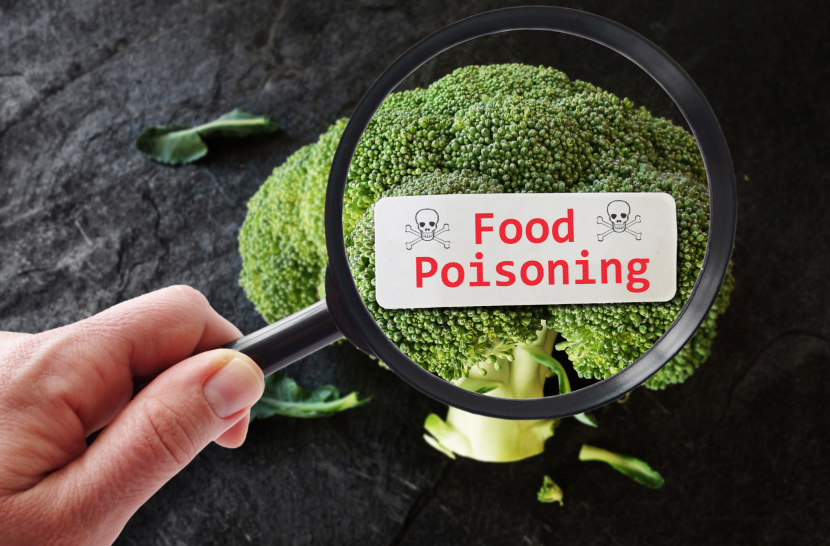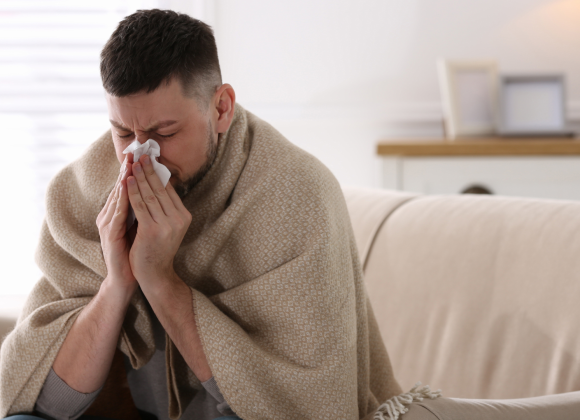Food poisoning—also known as foodborne illness—affects most people at some point in their lives. Whether you ate questionable takeout or an undercooked dish at a family barbecue, the aftermath can hit suddenly—and feel awful. Symptoms often include nausea, vomiting, stomach cramps, and diarrhea.
The good news? You can manage most mild cases at home with rest, plenty of fluids, and natural remedies.
In this guide, you’ll learn what causes food poisoning, how to spot it early, the best ways to treat it naturally, and how to avoid it altogether next time.
What is food poisoning?
Food poisoning is a form of acute gastroenteritis caused by consuming contaminated food or beverages containing harmful bacteria, viruses, parasites, or their toxins, which disrupt the digestive system. According to the World Health Organization (WHO), unsafe food leads to illness in over 600 million people annually and causes approximately 420,000 deaths worldwide. While most cases resolve on their own within a few days, food poisoning can result in serious complications, particularly in vulnerable groups such as young children, the elderly, pregnant women, and those with weakened immune systems.
Common Causes of Food Poisoning
There are several potential triggers for food poisoning, each caused by different pathogens or contaminants. Understanding these causes is key to prevention and better food handling practices.
- Bacterial Infections: Major causes include Salmonella (found in undercooked eggs, poultry, and unpasteurized milk), E. coli (linked to undercooked beef, raw vegetables, and contaminated water), Listeria (common in soft cheeses, deli meats, and smoked seafood), and Campylobacter (often from raw poultry and unpasteurized milk).
- Viral Infections: Norovirus spreads quickly through contaminated water, raw shellfish, or poor hygiene, while Hepatitis A is often transmitted by infected food handlers.
- Parasitic Infections: Parasites like Giardia, Toxoplasma, and Cryptosporidium are contracted through untreated water or undercooked meat, leading to foodborne illnesses.
Symptoms of Food Poisoning
Symptoms of food poisoning can vary depending on the type of contaminant involved, but they generally begin within a few hours to a few days after consuming contaminated food. Common signs include nausea and vomiting, often accompanied by diarrhea that may be watery or even bloody. Many individuals also experience abdominal cramps, fever, and chills. As the body fights off the infection, weakness and fatigue can set in, along with a noticeable loss of appetite. In more severe cases, dehydration may occur due to fluid loss, especially if vomiting and diarrhea are persistent. For a complete symptom guide, visit Mayo Clinic’s page on food poisoning.
Natural Remedies to Treat Food Poisoning at Home
When food poisoning strikes, your body needs time and support to recover. While rest and hydration are crucial, these natural remedies can help relieve symptoms and speed up healing.
1. Ginger Tea

Ginger is one of the most powerful natural remedies for nausea, vomiting, and inflammation—common symptoms of food poisoning. Its active compounds, like gingerol and shogaol, help relax the gastrointestinal tract and reduce stomach irritation.
How to use:
Boil 1–2 inches of fresh ginger root in 2 cups of water for 10 minutes. Strain and sip warm. You can add a teaspoon of honey for additional soothing effects.
2. Lemon Juice

Lemon’s natural acidity, high vitamin C content, and strong antimicrobial properties make it effective against bacteria that cause food poisoning.
How to use:
Mix the juice of half a lemon with a glass of lukewarm water. Drink once or twice a day to cleanse your system and boost immunity.
3. Apple Cider Vinegar (ACV)

ACV helps restore the stomach’s pH balance and can fight off harmful pathogens. It also soothes an upset stomach and encourages better digestion.
How to use:
Add 1 tablespoon of raw, unfiltered ACV to a glass of warm water and drink before meals or during symptoms.
4. Bananas

Bananas are gentle on the stomach, easy to digest, and rich in potassium—an important electrolyte lost through vomiting and diarrhea.
How to use:
Eat ripe bananas on their own or blend them into a smoothie with yogurt or coconut water for a light, nourishing meal.
5. Yogurt with Probiotics

Probiotic-rich yogurt helps repopulate your gut with good bacteria, which can be wiped out during an infection. It also supports digestion and boosts immunity.
How to use:
Eat plain, unsweetened yogurt with live cultures. Avoid flavored yogurts, which may contain added sugars or artificial ingredients.
6. Chamomile Tea

Chamomile is a soothing herb known to reduce inflammation, calm the stomach, and relieve cramping and nausea.
How to use:
Steep chamomile tea bags or dried flowers in hot water for 5–7 minutes. Sip slowly throughout the day.
7. Cumin Seed Water (Jeera Water)

Cumin seeds stimulate the secretion of digestive enzymes, reduce bloating, and help relieve abdominal discomfort caused by food poisoning.
How to use:
Boil 1 teaspoon of cumin seeds in 1 cup of water for 5–7 minutes. Strain and drink warm, once or twice a day.
8. Coconut Water

Coconut water is rich in natural electrolytes like potassium, sodium, and magnesium—perfect for rehydrating your body during recovery from food poisoning.
How to use:
Drink 1–2 glasses of fresh coconut water throughout the day to replenish lost fluids and minerals.
9. Fresh Basil

Basil has antimicrobial, anti-inflammatory, and soothing properties that support digestion and fight infections.
How to use:
Chew a few fresh basil leaves, or steep them in hot water to make a healing tea. You can also add a little honey for extra benefits.
Importance of Hydration
Hydration is crucial during food poisoning, as dehydration is one of its most serious risks. To prevent it, it’s important to drink plenty of fluids such as WHO-recommended Oral Rehydration Solution (ORS), coconut water, clear broths, and herbal teas. At the same time, avoid alcohol, caffeine, and sugary drinks, as they can worsen dehydration.
How to Prevent Food Poisoning
Prevention starts with proper hygiene, safe cooking, and clean food handling. Here are essential habits to protect yourself and your family:
Food Safety Tips:
- Wash hands thoroughly before and after cooking
- Clean all fruits and vegetables before eating
- Cook meat, eggs, and seafood to recommended temperatures
- Avoid cross-contamination (use separate cutting boards for meat and veggies)
- Keep the refrigerator below 40°F (4°C)
- Don’t consume expired, moldy, or suspicious-smelling food
- Avoid reheating rice multiple times (it can grow Bacillus cereus)
When to See a Doctor
It’s important to seek immediate medical attention if you experience any severe symptoms of food poisoning, such as a high fever above 101.5°F (38.6°C), bloody stool or vomit, signs of dehydration like dizziness, dry mouth, or a rapid heartbeat, or if diarrhea lasts more than three days. Additionally, the presence of neurological symptoms such as blurry vision or muscle weakness could indicate a more serious condition. In such cases, visit your nearest health center promptly or refer to the CDC Emergency Guidelines for further instructions.
Final Thoughts
Food poisoning is never pleasant, but it’s a common and often preventable condition. With proper attention to natural remedies, hydration, and food hygiene, you can recover faster and reduce your risk in the future. Taking control of your health starts with small daily habits—so wash those hands, cook that chicken thoroughly, and always trust your gut when something tastes off.




